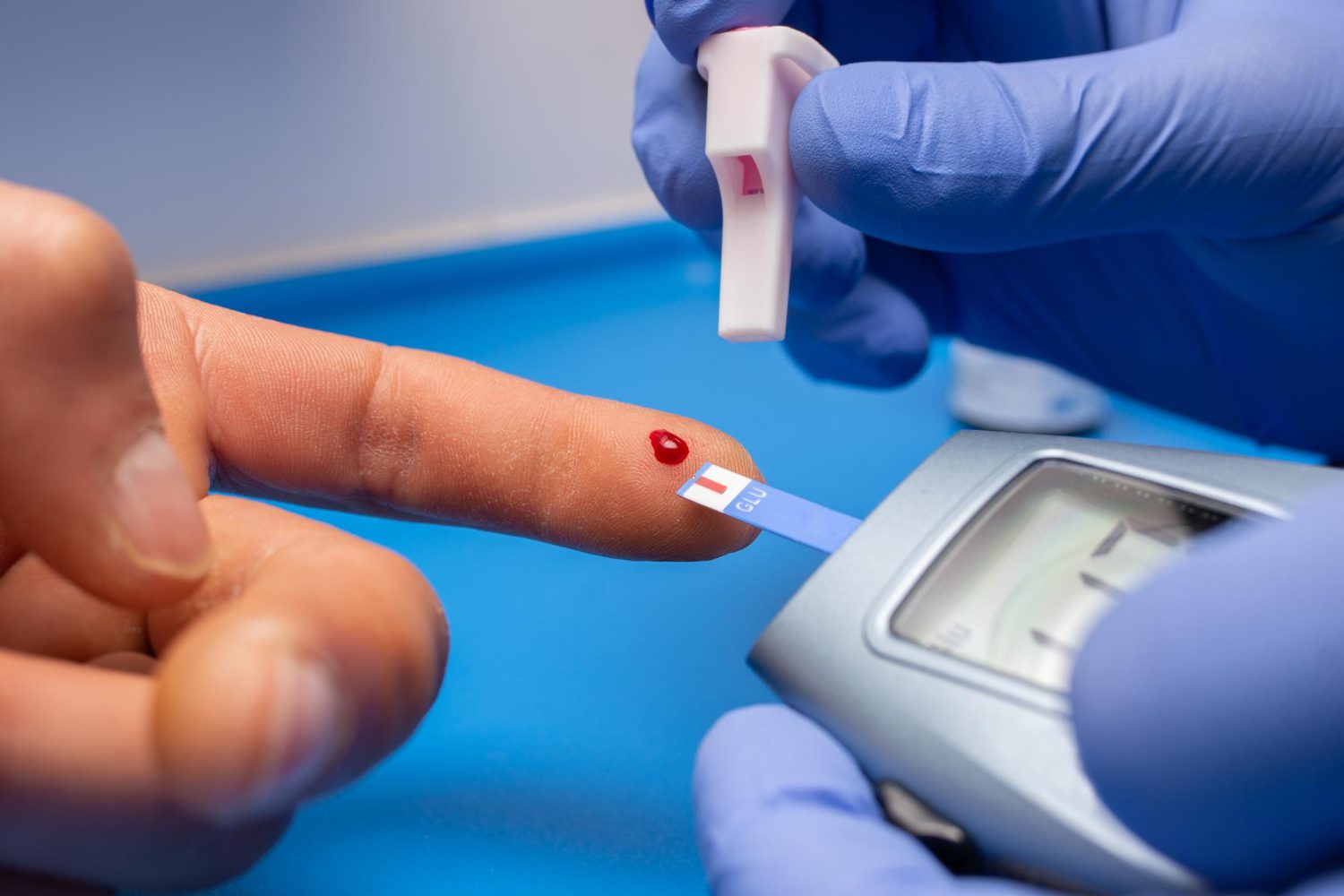
How Unveiling the Impact of Antibiotics on Blood Sugar Levels1
admin
- 0
- 9
Antibiotics can affect blood sugar levels, potentially causing fluctuations in glucose control. When taken, antibiotics can disrupt the balance of gut bacteria, which plays a crucial role in glucose metabolism.
This disruption can lead to changes in blood sugar levels, posing a potential challenge for individuals with diabetes or those at risk of developing the condition. However, the extent of impact may vary depending on the type of antibiotic and individual factors.
Understanding these potential effects can help healthcare professionals and individuals with diabetes in managing their blood sugar levels appropriately when taking antibiotics.

Table of Contents
ToggleUnderstanding The Connection Between Antibiotics And Blood Sugar Levels
Does Antibiotics Affect Blood Sugar
Antibiotics are commonly used medications to treat infections caused by bacteria. These medications are known to have various effects on the body, and one question that often arises is whether antibiotics can affect blood sugar levels. Understanding the connection between antibiotics and blood sugar is crucial, especially for individuals with diabetes or those at risk of developing the condition.
Let’s explore how antibiotics may impact blood sugar and the mechanisms behind this relationship.
How Do Antibiotics Affect Blood Sugar?
- Antibiotics can potentially impact blood sugar levels, both in individuals with diabetes and those without the condition.
- The exact effects can vary depending on the type of antibiotic and an individual’s overall health.
- Some antibiotics are known to raise blood sugar levels, while others may lower them.
- The impact on blood sugar can be temporary or longer-lasting, depending on factors such as the duration of antibiotic use and an individual’s response to the medication.
The Relationship Between Antibiotic Use And Blood Glucose Levels
- Several studies have shown a potential link between antibiotic use and alterations in blood glucose levels.
- Antibiotic-induced changes in blood sugar can be influenced by factors such as the body’s response to inflammation, changes in gut bacteria, and the medication’s direct effects on glucose metabolism.
- In individuals with diabetes, the impact of antibiotics on blood sugar needs to be carefully monitored and managed to avoid complications.
- It is crucial for healthcare professionals to be aware of the potential effects of antibiotics on blood glucose levels and consider these factors when prescribing medications.
Mechanisms By Which Antibiotics May Impact Blood Sugar Levels
- Antibiotics can disrupt the balance of gut bacteria, leading to changes in glucose metabolism and insulin sensitivity.
- Inflammation caused by bacterial infections can affect insulin action and impair glucose regulation.
- Some antibiotics can directly affect glucose metabolism by interfering with insulin signaling pathways or altering liver function.
- The individual’s overall health and any underlying conditions can influence the body’s response to antibiotics and blood glucose regulation.
Understanding the connection between antibiotics and blood sugar levels is essential for both healthcare professionals and individuals taking these medications. By monitoring blood sugar levels and managing any potential impacts, individuals can minimize the risks and optimize their overall health during antibiotic treatment.
As always, it is crucial to consult with a healthcare professional for personalized advice and guidance regarding antibiotic use and blood sugar management.
Antibiotics That May Affect Blood Sugar Levels
Antibiotics are commonly prescribed medications used to treat bacterial infections. While they are effective in fighting off harmful bacteria, some antibiotics may have an impact on blood sugar levels, making it important for individuals with diabetes to be cautious. Understanding which antibiotics can potentially affect blood glucose is crucial in managing diabetes effectively.
In this section, we will explore the commonly prescribed antibiotics and their potential impact on blood sugar levels.
Commonly Prescribed Antibiotics And Their Potential Impact On Blood Glucose
- Fluoroquinolones: These antibiotics, such as ciprofloxacin and levofloxacin, may increase blood sugar levels in people with diabetes. It is important to monitor blood glucose levels closely while taking these medications.
- Macrolides: Azithromycin and clarithromycin are examples of macrolide antibiotics. They are generally considered safe for individuals with diabetes and do not typically affect blood glucose levels.
- Tetracyclines: Commonly prescribed tetracycline antibiotics, including doxycycline and minocycline, usually do not have a significant impact on blood sugar levels.
- Sulfonamides: Antibiotics like sulfamethoxazole-trimethoprim and sulfadiazine may increase blood sugar levels and should be used cautiously in people with diabetes.
- Penicillins: Most penicillin antibiotics, such as amoxicillin and ampicillin, are not known to affect blood glucose levels in individuals with diabetes.
Specific Antibiotics To Be Cautious Of If You Have Diabetes
- Ciprofloxacin: This fluoroquinolone antibiotic has been associated with an increased risk of hypoglycemia (low blood sugar). People with diabetes should monitor their blood glucose levels carefully while taking ciprofloxacin.
- Bactrim: Sulfamethoxazole-trimethoprim, commonly known as bactrim, can interfere with blood sugar control in individuals with diabetes. Close monitoring of blood glucose levels is advised when taking this antibiotic.
- Metronidazole: While metronidazole is commonly used to treat various infections, it may cause blood sugar levels to fluctuate in individuals with diabetes. Regular blood glucose monitoring is important during metronidazole treatment.
Factors Influencing The Degree Of Blood Sugar Level Variations Caused By Antibiotics
- Dosage and duration: Higher doses and longer durations of antibiotic treatment may have a more significant impact on blood glucose levels.
- Individual sensitivity: Each person may respond differently to antibiotics. Some individuals with diabetes may be more susceptible to blood sugar fluctuations caused by certain antibiotics.
- Overall diabetes management: Proper diabetes management, including adherence to a healthy diet, regular exercise, and medication regimen, can help minimize the impact of antibiotics on blood sugar levels.
While some antibiotics can potentially affect blood sugar levels in individuals with diabetes, it is essential to be aware of which antibiotics may have an impact and to closely monitor blood glucose levels when taking these medications. Consultation with a healthcare professional is advised to ensure the safe and effective management of diabetes during antibiotic treatment.
Managing Blood Sugar Levels During Antibiotic Treatment
Taking antibiotics can have an impact on blood sugar levels, which is especially important for individuals with diabetes to keep in mind. Monitoring blood glucose levels closely during antibiotic treatment is crucial for maintaining optimal diabetes management. Collaborating with healthcare professionals is essential in order to make sure that blood sugar levels are effectively managed throughout the course of treatment.
Let’s explore some tips for individuals with diabetes who are taking antibiotics to ensure their blood sugar levels stay on track.
Frequently Asked Questions For Does Antibiotics Affect Blood Sugar
Does Taking Antibiotics Affect Blood Sugar Levels?
Antibiotics can sometimes affect blood sugar levels, especially in people with diabetes. Some antibiotics, such as quinolones and tetracyclines, can cause changes in blood sugar levels. It is important for individuals with diabetes to monitor their blood sugar closely while taking antibiotics.
Can Antibiotics Cause High Blood Sugar?
Yes, certain antibiotics like fluoroquinolones and beta-lactams have been known to cause high blood sugar levels in some individuals, particularly those with diabetes. If you have diabetes, it is essential to keep a close eye on your blood sugar levels when taking antibiotics.
Can Antibiotics Cause Low Blood Sugar?
While it is rare, some antibiotics, like sulfonamides, can cause low blood sugar levels in certain individuals. If you experience symptoms such as weakness, dizziness, or confusion while taking antibiotics, it is important to monitor your blood sugar levels and consult your healthcare provider for further guidance.
How Do Antibiotics Affect Insulin Sensitivity?
The exact mechanisms of how antibiotics affect insulin sensitivity are not fully understood. However, some antibiotics may disrupt the balance of gut bacteria, which could potentially impact insulin sensitivity. Further research is needed to fully understand this relationship.
Should I Be Concerned About My Blood Sugar Levels While Taking Antibiotics?
If you have diabetes or are at risk for abnormal blood sugar levels, it is important to be aware of the potential impact of antibiotics on your blood sugar. Monitor your blood sugar levels closely and discuss any concerns with your healthcare provider to ensure proper management.
Conclusion
The relationship between antibiotics and blood sugar levels is complex and can vary depending on the individual and the specific antibiotic being used. While some antibiotics have been found to potentially affect blood sugar levels, more research is needed to fully understand the extent of this interaction.
It is important for individuals with diabetes or other blood sugar control issues to closely monitor their blood sugar levels while taking antibiotics and to communicate with their healthcare provider. Additionally, maintaining a healthy lifestyle through proper diet and exercise can also help to manage blood sugar levels.
Ultimately, it is crucial for individuals to consult with their healthcare provider for personalized advice and guidance on how antibiotics may affect their blood sugar levels and overall health. By staying informed and proactive, individuals can effectively manage their blood sugar levels while on antibiotics and maintain optimal health.



